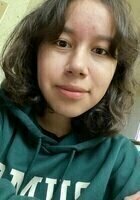All CPA Financial Accounting and Reporting (FAR) Resources
Example Questions
Example Question #1 : Statement Of Cash Flows
The Ravenswood Company has 100,000 shares of outstanding common stock on December 31, Year 2. On January 15, Year 3, Ravenswood declares a stock dividend of 10,000 shares when the market value per share is $12. On the date of record, February 1, the market price per share is $15. The dividend is issued on March 1, when the market price per share is $18. What price per share will be used in the journal entry to record the dividend?
$12
Par value
$18
$15
Par value
A memo entry will be made for the stock dividend at par value.
Example Question #2 : Statement Of Cash Flows
Which of the following will result in a decrease in total stockholder's equity?
Positive net income in the year before
Cash dividend
Small stock dividend
Large stock dividend
Cash dividend
Positive net income will increase stockholder's equity. Large and small stock dividends will have no net effect on total stockholder's equity. Cash dividends reduce total stockholder's equity by the amount of the dividend payment.
Example Question #3 : Statement Of Cash Flows
Fairway Company began Year 3 with owner's equity of $60,000 and ended Year 3 with owner's equity of $94,000. During the Year, Fairway issued 1,000 shares of new stock at a par value of $10 per share when the market value was $15 per share. Fairway also paid out a cash dividend of $2 per share to 20,000 shareholders during the year. What was net income for the year?
$64,000
$59,000
$104,000
$84,000
$64,000
Ending owner's equity equals beginning owner's equity of $60K, plus cash received for the new shares of $10K, plus the missing net income amount, minus dividends paid of $40K. Thus, we can back into net income. Net income equals $94K - $60 - $10K + $40K = $64K.$104,000
Example Question #1 : Non Income Financial Statements
Of the following, which would be classified as a decrease in cash flow from investing activities?
The purchase of fixed assets
The purchase of direct materials
Payment of Dividends
Salaries Expenses
The purchase of fixed assets
Purchasing long term investments or long term assets is an investing activity which reduces the cash account, this resulting in a decrease in cash flow.
Example Question #1 : Statement Of Retained Earnings
A company has to report cash flows generated from its operating activities. Which of the following is true in regards to the presentation of operating activities on the statement of cash flows?
FASB allows the indirect method but not the direct method
FASB has expressed a preference for the direct method but allows the indirect method
FASB has expressed a preference for the indirect method but allows the direct method
FASB allows the direct method but not the indirect method.
FASB has expressed a preference for the direct method but allows the indirect method
FASB allows a company to choose between the direct and indirect method for reporting cash flows from operating activities. FASB believes that the direct method better achieves the statement's goal of providing relevant financial information.
Example Question #2 : Statement Of Retained Earnings
A company's total stockholders' equity on January 1 was $870,000. At the end of the year this balance was $990,000. The company bought back treasury stock during the year. The shares were originally issued for $120,000 and were reacquired for $150,000. The company reported net income for the year of $340,000. No other stock transactions occurred during the year but a dividend was paid. How much should be reported on the statement of cash flows for the dividend distribution?
$60,000
$50,000
$70,000
$80,000
$70,000
To get from beginning stockholder's equity to ending stockholder's equity, the following calculation is done: $870K beginning equity minus $150K paid for the treasury stock, plus $340K in net income, minus the missing amount for the dividend payment. To back into, the dividend payment, the calculation is $870K - $150K + $340K - $990K = $70K.
Example Question #3 : Statement Of Retained Earnings
A building is bought on August 1, Year 1, for $400,000 and is depreciated using the straight-line method over a life of 20 years with an expected residual value of $40,000. The half-year convention is elected. On April 1, Year 3, the building is sold for a loss of $30,000. What appears on the company's year 3 statement of cash flows?
Investing activities cash inflow of $370,000
Operating activities cash inflow of $325,000
Operating activities cash inflow of $364,000
Investing activities cash inflow of $334,000
Investing activities cash inflow of $334,000
Purchases and sales of long-term assets belong in the investing activities section of the statement of cash flows.To calculate the amount of cash received in the sale, determine the net book value of the asset at the time of the sale. ($400K purchase price - $40K residual value) / 12 years x 2 years = $36K in depreciation. $400K - $36K = NBV of $364K, meaning cash of $334 was received for the building.
Example Question #2 : Non Income Financial Statements
Which of the following accounts would affect retained earnings? A) Net income B) Dividend payments
Neither
A
B
Both
Both
Net income would result in an increase to retained earnings where as dividend payouts decrease the retained earnings account.
Example Question #1 : Cpa Financial Accounting And Reporting (Far)
Which of the following would be classified on the balance sheet as a current asset?
Not receivable due in 18 months
Accrued professional fees
Office furniture
Prepaid insurance
Prepaid insurance
Prepaid insurance is classified as a current asset because they are typically fully amortized within 1 year.
Example Question #2 : Cpa Financial Accounting And Reporting (Far)
Florax Company begins Year 2 with $8,000 in its machinery & equipment account and $1,500 in related accumulated depreciation. During Year 2, Florax bought $4,000 in additional equipment and recorded total depreciation expense for the year of $800. What amount will Florax report as net machinery & equipment in its Year 2 balance sheet
$12,000
$14,300
$9,700
$12,000
$9,700
Florax began the year with $6,500 in net machinery & equipment ($8K - $1,500). $6,500 plus $4K in purchases, minus $800 in depreciation recorded equal engine net machinery & equipment of $9,700.
Certified Tutor
All CPA Financial Accounting and Reporting (FAR) Resources




